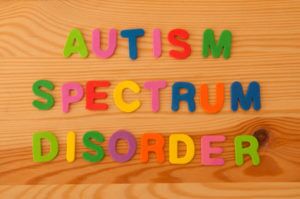
Autism Spectrum Disorder (ASD) is a developmental disability that typically appears during the first three years of life and affects a person’s ability to communicate and interact with others, according to the Autism Society.
Approximately 3.5 million Americans have autism and it affects people in different ways and in varying degrees. Approximately 1 in every 68 children has ASD, according to The Centers for Disease Control and Prevention (CDC). According to an article published by Autism Speaks, children with autism have a better chance of leading independent and productive lives if, during their childhood years, the adults around them have an understanding of the elements of their condition.
What Adults Need to Understand about Children with Autism
While every child’s needs are unique, there are basic points that all adults closely associated with autistic children should understand:
- A child is not defined by autism, but rather is an individual with unique characteristics and capabilities that are still emerging. Do not discourage the child’s personal growth with your own low expectations.
- The senses of autistic children – sight, sound, smell, taste, and touch – may be hyper acute. What is ordinary sensory perception to you could cause input overload for an autistic child, making the environment appear hostile and causing the child to withdraw or to fight back.
- Children with ASD often fail to follow instructions because they cannot understand them. Instead of calling across the room, walk over to the child, get the child’s attention, and state simply and clearly what you want him or her to do.
- Autistic children are literal thinkers. Do not use idioms, nuances, or sarcasm. If the child is talking too loudly, say, “Speak more quietly, please,” not “Can you please take it down a notch or two?”
- Be aware that the child’s ways of communicating may differ greatly from your own. Watch body language and behavior for indications that something is wrong. Understand that when the child rattles off speeches memorized from television or another source, it is his or her way of compensating for not having the words needed to communicate.
- Do not just tell children with ASD how to do something – show them, as many times as necessary. Autistic children are visually oriented, and they need visual demonstrations to process information and learn.
- Focus on strengths and abilities and build on them. Constant correction and “constructive” criticism can lower children’s self-esteem and discourage them from even trying.
- Children with ASD may not know how to socialize and may need help from adults getting started. Teach them how to play and coach them on social interactions with others.
- Learn what triggers a child’s blow-ups or meltdowns in order to prevent them. The cause could be something physical, such as food allergies and sensitivities or sleep problems.
- Love your autistic child unconditionally, regardless of any unfulfilled expectations. Remember that your support and guidance are essential to the child’s well-being and future success.
Supplemental Security Insurance (SSI) Benefits for Childhood Autism
Caring for an autistic child can be challenging and expensive in addition to being very rewarding. If your child’s condition and financial circumstances meet Social Security Administration eligibility requirements, he or she may be entitled to receive Supplemental Security Income (SSI) disability benefits.
At Hardison & Cochran, we handle SSD and SSI claims for children and adults. We focus on putting our clients first and obtaining results. Our experienced SSD lawyers will fight to ensure that you and your family receive the benefits you deserve.
Sources:
- Autism Society: About Autism https://autismsociety.org/who-we-are/
- Centers for Disease Control and Prevention (CDC): Autism Spectrum Disorder (ASD) http://www.cdc.gov/ncbddd/autism/index.html





Leave a comment